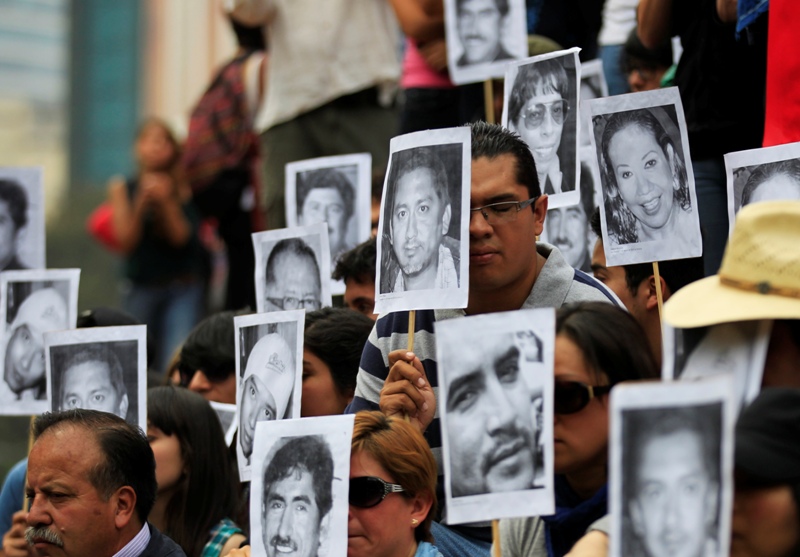The International Press Institute (IPI) expressed concern today about missing Mexican journalist Moisés Sánchez Cerezo, who disappeared last week in Medellín de Bravo, Veracruz.
Sánchez, who reported on corruption among local officials and drug-related violence in the area, has been missing since the evening of Jan. 2, when his family reported that nine armed men in plainclothes removed him from his home. The men also allegedly confiscated his phone, computer and camera.
In addition to his reporting, Sánchez published complaints by local residents in La Unión, a weekly funded by his work as a taxi driver and small business owner, and posted updates related to local security on social media platforms. He was known for his social activism, having recently formed a ‘citizen’s self-defence committee’ with other community members to combat neighbourhood crime.
According to family members, Sánchez received threats over the past year from Medellín de Bravo Mayor Omar Cruz and other unidentified individuals. Sánchez’s son said that his father had received a threat indicating he would be given “a scare” only three days before his disappearance.
Cruz denied involvement in the case in a press conference held on Monday.
On Tuesday, the town’s entire police department was questioned, with 36 officers being asked to give statements about the disappearance. On Wednesday, state prosecutor Luis Angel Bravo ordered 13 officers held for 30 days in connection with the case. Prosecutors also took a DNA sample from Sánchez’s son to see if it matched an “unrecognizable” body discovered late Monday in nearby Soledad de Doblado that bore signs of torture.
Mexico is a notoriously dangerous country for journalists, where corruption and the influence of violent drug cartels have given rise to a deeply entrenched culture of impunity.
In a statement posted online, the Office of the Special Rapporteur for Freedom of Expression of the Inter-American Commission on Human Rights (IACHR) on Tuesday urged local authorities to thoroughly investigate the possibility that Sánchez’s disappearance may be linked with the exercise of his right to free expression and his human-rights oriented community activism.
Mexico’s National Human Rights Commission called on Mexico’s federal government to take control of the investigation into Sánchez’s disappearance yesterday, a call that IPI endorsed.
“Local authorities in Mexico far too often have failed to protect journalists under threat or to hold their attackers to account, and too many journalists have been targeted in Veracruz in recent years for reporting on matters that are in the public interest,” IPI Director of Advocacy and Communications Steven M. Ellis said. “While we appreciate the apparent efforts by local authorities to locate Mr. Sánchez, the federal government was given the legal authority to investigate and prosecute this type of case precisely to avoid a repeat of those past failures. We urge federal authorities to demonstrate a will to combat impunity and protect the right to free expression, to assume jurisdiction over the investigation and to take all steps to bring Mr. Sánchez home safely and bring his kidnappers to justice.”
Sánchez’s disappearance came within days of the death of Jazmín Martínez, a former reporter on culture and entertainment for the Televisa network. Martínez and her husband were killed after they were kidnapped some 70 km outside Tepic, the capital of Nayarit state on Dec. 31. It was unclear whether Martínez’s killing was related to her work as a journalist and initial reports indicated that the couple was murdered by their captors following a miscommunication about ransom negotiations with the victims’ families.
